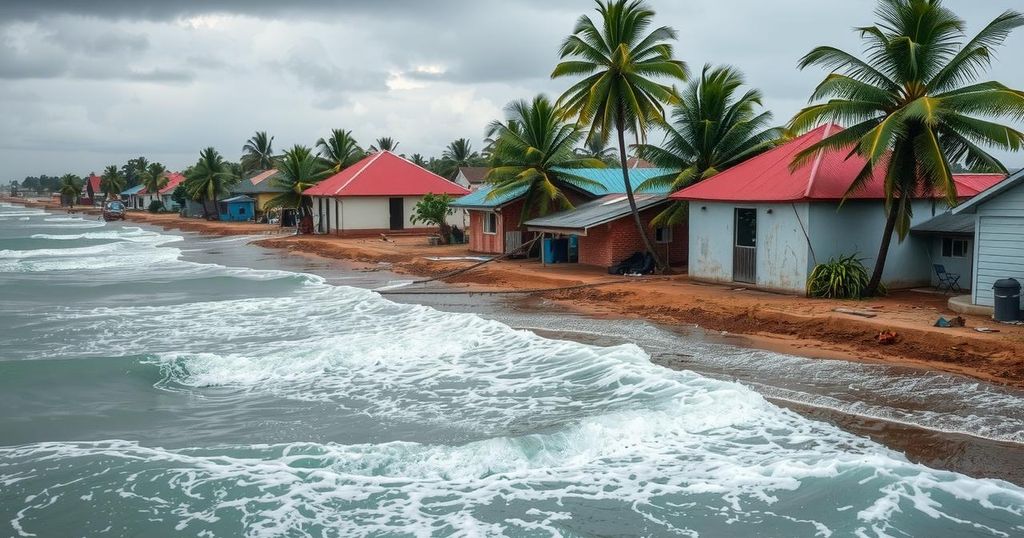Mozambique faces a humanitarian crisis following Tropical Cyclone Chido, which struck in December 2024, resulting in 453,971 impacted individuals, significant infrastructure damage, and a cholera outbreak in Nampula. Urgent assistance is needed for shelter, food, and health services amid a backdrop of existing conflicts and droughts affecting millions. There is a pressing call for additional resources to respond to immediate needs and prevent further suffering.
In December 2024, Mozambique was severely impacted by Tropical Cyclone Chido, resulting in widespread destruction and human suffering. The cyclone made landfall on December 15, unleashing torrential rainfall exceeding 250 mm in just 24 hours and generating wind speeds up to 120 km/h. Following its landfall, the cyclone transitioned into Malawi and dissipated over Zimbabwe by December 17. By late December, reports indicated that 453,971 individuals were affected, with 120 fatalities and extensive damage to infrastructure, including homes, schools, and health facilities.
The National Institute for Natural Disasters (INGD) reported continuous assessments revealing escalating needs across the affected regions, particularly in Cabo Delgado Province, where over 272,000 people faced devastating conditions. A multi-agency assessment highlighted that areas like Mecufi witnessed nearly total destruction, with most homes reduced to ruins. Survivors are living in makeshift shelters, with their living conditions severely compromised.
In Nampula Province, the cyclone’s impact further aggravated the situation, with an estimated 175,169 individuals affected and significant casualties reported. A cholera outbreak exacerbates the crisis, with authorities warning that the cyclone’s destruction of health services could worsen public health conditions. Challenges in transportation and communication have hampered relief efforts, with reports of damaged roads hindering the evacuation of patients and delivery of supplies.
Despite preemptive measures taken by the government, including early warnings and evacuations, the scale and urgency of human needs have overwhelmed available resources. Humanitarian organizations are struggling to respond adequately, while urgent resources are needed for shelter, food, water, and health services. Moreover, the cyclone has heightened vulnerability to gender-based violence and human trafficking in the aftermath of destruction and displacement.
The situation faced by communities affected by Cyclone Chido reflects ongoing crises, including a drought impacting 1.4 million people and existing conflicts displacing another 1.3 million. With existing humanitarian funding falling short, there is an urgent call for additional resources to support relief efforts, maintain agricultural practices, and prevent the further spread of waterborne diseases. Time is of the essence, as immediate action is necessary to alleviate suffering and restore lives in Mozambique.
Tropical Cyclone Chido struck Mozambique in December 2024, resulting in catastrophic damage and a humanitarian crisis. This cyclone follows a series of challenges in the region, including conflict and drought, contributing to heightened vulnerability among communities. The swift destruction of homes, infrastructure, and health facilities has left countless individuals in dire need of humanitarian aid. Local authorities and various humanitarian partners are working to address the needs while facing significant obstacles and resource limitations.
The aftermath of Tropical Cyclone Chido has created an immediate humanitarian crisis in Mozambique, with hundreds of thousands impacted and essential services inoperative. Emergency response efforts are crucial and urgently needed to address the growing humanitarian needs, prevent disease outbreaks, and support displaced populations. Additional funding and resources are imperative to provide shelter, food, health services, and protection to those most vulnerable. Without timely intervention, the dire situation may further deteriorate.
Original Source: www.unocha.org






